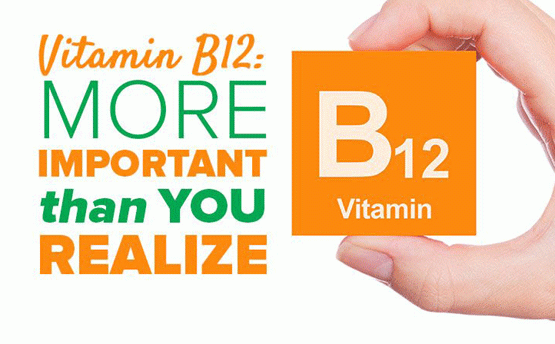Vitamin B12 – Which is Better? Cyanocobalamin Versus Methylcobalamin
Cyanocobalamin Versus Methylcobalamin, a closer look.
In this day and age, most everyone who is into vitamins and supplements already knows that vitamin B12 is a vital nutrient for the body. Vitamin B12 plays a critical role in the protection of the bodies DNA and RNA. It also supports energy and protecting nerve cells and brain cells. B12 plays many essential roles in the stimulation of serotonin production, contributing to red blood cell formation, immune system function, and even help us to achieve and maintain a positive mood. Atlantis: HEALTH

Yes, they are different, Cyanocobalamin Versus Methylcobalamin.
Of the types of B12 that are available, there are two forms that you’re likely to find in stores and online – methylcobalamin and cyanocobalamin. Cyanocobalamin is the most commonly available form of vitamin B12 and is chemically synthesized. Then there is Methylcobalamin which is found in animal-based foods making it available in a naturally occurring state.
The form known as Methylcobalamin is fast gaining popularity over cyanocobalamin and chances are that soon we will see methylcobalamin outselling cyanocobalamin worldwide. Methylcobalamin.
Methylcobalamin is by far the superior and most desirable form of vitamin b12. This is the co-enzymated active form that our bodies use. When we take Cyanocobalamin our bodies must first convert it into methylcobalamin, so it is better to take the active form and save your body the trouble of making this conversion.
Methylcobalamin is the bioavailable and metabolically active coenzyme form of vitamin B12. It is involved in the healthy function of the methylation pathway and may assist in the management of dietary vitamin B12 deficiency.
So, what’s the difference between methylcobalamin and cyanocobalamin?
Methylcobalamin has a methyl group (just carbon and hydrogen) while cyanocobalamin contains a cyanide molecule. And though the amount of cyanide in a normal B12 supplement is not enough to cause harm, your body will still need to remove and eliminate this part of the cyanocobalamin version of B12. Your body has no use for the cyano-compound itself, it begins the process of converting any cyanocobalamin you take into methylcobalamin and will do so in an expeditious manner. It is the methyl-compound that our bodies need to function properly.

What makes methylcobalamin a superior health supplement? Cyanocobalamin Versus Methylcobalamin.
Methylcobalamin is hands down the most bio-available form of Vitamin B12 and that is why it is the most bio-available and efficiently absorbed by our bodies. In addition to this research has shown that methylcobalamin remains in the body for a longer period of time and at substantially higher levels than cyanocobalamin, the result of which is that your body has a longer lasting supply of vitamin B12 if you use methylcobalamin than if you use cyanocobalamin. Cyanocobalamin Versus Methylcobalamin, find the answers.
Methylcobalamin is mostly processed in your liver, brain and nervous system, in fact, methylcobalamin is the exact type of B12 that is needed for optimal nervous system function.
Methylcobalamin plays a vital role in our bodies nervous system health as well as being a critical nutrient for vision. Studies have shown that methylcobalamin markedly improves visual accommodation, while cyanocobalamin appears to be ineffective. What is visual accommodation? It is the ability to rapidly shift your visual focus from something nearby to something that is farther away. Often, this is impaired by activities of our modern lifestyle such as staring at a computer screen or a smartphone for long periods of time.
Cyanocobalamin Versus Methylcobalamin. The role of sleep cycles.
One well-studied use of methylcobalamin has to do with our sleep cycles. Although the exact mechanism of action is not yet accurately understood, it is theorized that methylcobalamin is necessary for how the body processes melatonin. Studies show that methylcobalamin is involved in the modulation of melatonin secretion, enhance light-sensitivity, and normalize circadian rhythm. Consequently, those who supplement using the methylcobalamin form of B12 often experience improved quality of sleep. They often will require a shorter time period of sleep, and will frequently report feeling more refreshed, alert and clear-headed upon waking.

A primary function of methylcobalamin in the body is to convert homocysteine to methionine. Having high homocysteine levels are an indicator of heart disease and stroke risk due to the fact high levels of homocysteine in the blood cause sclerosis of the arteries and this puts a strain on our bodies vascular system and the heart.
When methylcobalamin converts homocysteine to methionine this reduces the potential for damage because the reaction results in the formation of the super-antioxidant glutathione. Glutathione is the body’s master detoxifier and the body’s main antioxidant, protecting our cells from damage.
It is worth noting that cyanocobalamin is the form of B12 most used in supplements because it’s the less expensive and even though methylcobalamin is a better form of B12 both are very good at providing nutritionally valuable quantities of Vitamin B12 to our bodies.
How much B12 is recommended?
Vitamin B12 naturally occurs in animal products like organ meats, oily fish, beef and dairy products. If you are not regularly consuming these food groups then you are like at risk of a deficiency. Vitamin B12 supplements are therefore highly recommended for those who practice a vegan or vegetarian diet regimen. Also, if you have been diagnosed with a bowel disorder, absorption may be a problem to consider.

The daily recommended dosage for Vitamin B12 is 1.5mcg – 2.0mcg/day. B12 supplements, however, do commonly contain up to 1000mcg without exerting a toxic effect on the body.
Vitamin B12 – Cyanocobalamin B12 – Methylcobalamin B12 – Cyanocobalamin Versus Methylcobalamin – B12 and Brain Health – Aging and B12
Cyanocobalamin Versus Methylcobalamin.








